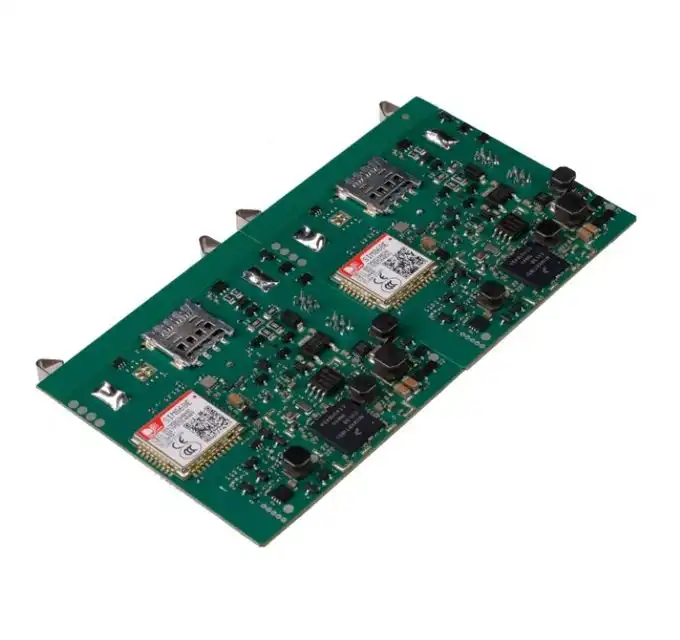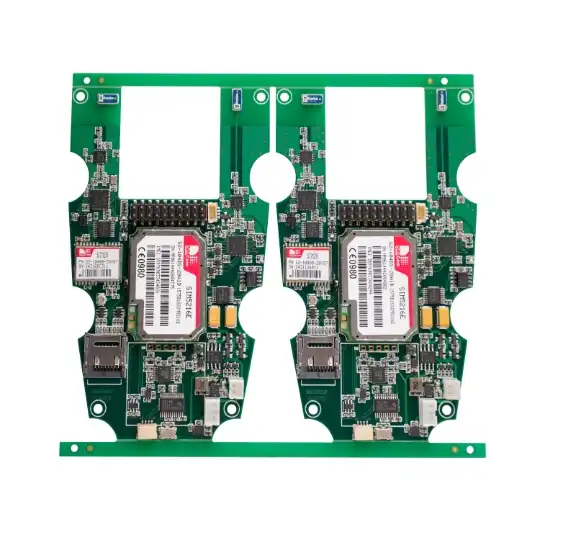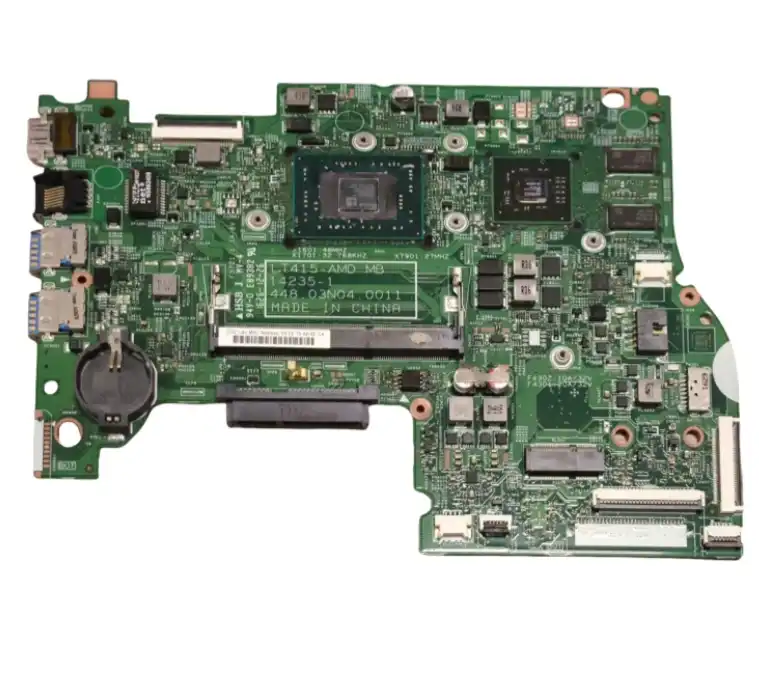Introducing PCBA Certifications and Their Importance
PCBA Certification play a vital role in the electronics manufacturing industry, serving as a testament to a company's commitment to quality and reliability. These certifications are not merely accolades but essential indicators of a manufacturer's ability to meet stringent industry standards and customer expectations.
One of the most recognized certifications in the PCBA industry is the ISO 9001 standard. This certification focuses on quality management systems and ensures that organizations have robust processes in place to consistently deliver products that meet customer and regulatory requirements. For PCBA manufacturers, ISO 9001 certification demonstrates their ability to maintain high-quality standards throughout the production process.
Another crucial certification is the IPC-A-610 standard, which specifically addresses the acceptability of electronic assemblies. This standard provides detailed criteria for PCBA quality, covering aspects such as soldering, component placement, and overall workmanship. Adherence to IPC-A-610 ensures that PCBAs meet industry-accepted levels of quality and reliability.
The IATF 16949 certification is particularly important for PCBA manufacturers serving the automotive industry. This standard builds upon ISO 9001 and includes additional requirements specific to the automotive sector, ensuring that PCBAs meet the rigorous quality and safety standards demanded by automotive manufacturers.
Benefits of PCBA Certifications
PCBA certifications offer numerous advantages to both manufacturers and their customers:
- Enhanced quality assurance
- Improved customer confidence
- Streamlined production processes
- Reduced defects and rework
- Compliance with industry regulations
- Competitive advantage in the market
By obtaining and maintaining these certifications, PCBA manufacturers demonstrate their commitment to excellence and their ability to meet the diverse needs of their clients across various industries.
Key Quality Standards in PCBA Manufacturing
Quality standards in PCBA Certification encompass a wide range of protocols and specifications designed to ensure the production of reliable, high-performance electronic assemblies. These standards cover various aspects of the manufacturing process, from design and component selection to assembly techniques and testing procedures.

The IPC standards are among the most widely recognized and respected in the PCBA industry. These standards provide detailed guidelines for the design, production, and testing of electronic assemblies. Some of the key IPC standards relevant to PCBA manufacturing include:
- IPC-A-600: Acceptability of Printed Boards
- IPC-6012: Qualification and Performance Specification for Rigid Printed Boards
- IPC-7711/7721: Rework, Modification and Repair of Electronic Assemblies
- IPC-J-STD-001: Requirements for Soldered Electrical and Electronic Assemblies
These standards provide comprehensive criteria for evaluating the quality of PCBAs at various stages of production, ensuring consistency and reliability across the industry.
Environmental and Safety Standards
In addition to quality-focused standards, PCBA manufacturers must also adhere to environmental and safety regulations. The RoHS (Restriction of Hazardous Substances) directive, for instance, restricts the use of certain hazardous materials in electronic equipment. Compliance with RoHS ensures that PCBAs are environmentally friendly and safe for consumer use.
Similarly, the REACH (Registration, Evaluation, Authorization, and Restriction of Chemicals) regulation governs the use of chemicals in manufacturing processes, including those used in PCBA production. Adherence to REACH demonstrates a manufacturer's commitment to environmental responsibility and product safety.
Implementing Effective Quality Control Processes in PCBA Manufacturing
Effective quality control processes are essential for maintaining high standards in PCBA manufacturing. These processes encompass various stages of production, from incoming material inspection to final product testing.
One crucial aspect of quality control in PCBA manufacturing is the implementation of Advanced Product Quality Planning (APQP). This systematic approach to product development and manufacturing ensures that all quality requirements are met throughout the production process. APQP involves several key steps:
- Planning and defining the project
- Product design and development
- Process design and development
- Product and process validation
- Feedback, assessment, and corrective action
By following the APQP methodology, PCBA Certification can identify and address potential quality issues early in the production cycle, reducing the risk of defects and improving overall product quality.
Automated Optical Inspection (AOI) and X-ray Inspection
Advanced inspection technologies play a crucial role in ensuring PCBA quality. Automated Optical Inspection (AOI) systems use high-resolution cameras and sophisticated image processing algorithms to detect defects such as missing components, incorrect placements, and solder joint issues. AOI allows for rapid and accurate inspection of PCBAs, significantly reducing the likelihood of defective products reaching customers.
X-ray inspection complements AOI by providing insight into areas that are not visible to optical systems. This technology is particularly useful for inspecting ball grid array (BGA) components, hidden solder joints, and multilayer PCBs. X-ray inspection can detect issues such as voids in solder joints, component misalignment, and internal structural defects.

Conclusion
PCBA certifications and quality standards are indispensable in the electronics manufacturing industry, serving as benchmarks for excellence and reliability. From ISO certifications to IPC standards, these guidelines ensure that PCBAs meet the highest quality and safety requirements across various sectors. By implementing robust quality control processes and leveraging advanced inspection technologies, manufacturers can consistently produce top-tier PCBAs that meet the evolving demands of the electronics market. As the industry continues to advance, adherence to these standards and continuous improvement in quality management will remain crucial for success in PCBA manufacturing.
FAQ
What is the most important certification for PCBA manufacturers?
While several certifications are important, ISO 9001 is often considered fundamental as it ensures a robust quality management system.
How often do PCBA certifications need to be renewed?
Most certifications require annual audits and recertification every three years, but this can vary depending on the specific standard.
Can a PCBA manufacturer operate without certifications?
While technically possible, operating without certifications significantly limits a manufacturer's credibility and market opportunities, especially in industries with strict quality requirements.
Expert PCBA Manufacturing and Certification Services | Ring PCB
Ring PCB stands at the forefront of PCBA Certification excellence, boasting a team of over 500 professionals dedicated to delivering innovative and reliable solutions. Our state-of-the-art facility operates 24/7, ensuring seamless collaboration with clients worldwide. With certifications including ISO9001, ISO14001, and IATF16949, we guarantee the highest quality standards in every PCBA we produce. For unparalleled expertise in PCBA manufacturing and certification compliance, contact our factory at [email protected].
References
1. Smith, J. (2022). "The Comprehensive Handbook of PCBA Certifications and Standards." Electronics Manufacturing Quarterly, 45(2), 78-95.
2. Johnson, R., & Lee, S. (2021). "Quality Control Processes in Modern PCBA Manufacturing." Journal of Electronic Assembly, 33(4), 201-218.
3. International Organization for Standardization. (2023). "ISO 9001:2015 Quality Management Systems - Requirements."
4. IPC - Association Connecting Electronics Industries. (2022). "IPC-A-610G: Acceptability of Electronic Assemblies."
5. Brown, T., & Garcia, M. (2023). "Advanced Inspection Technologies in PCBA Quality Assurance." Electronics Manufacturing Technology, 18(3), 112-129.





